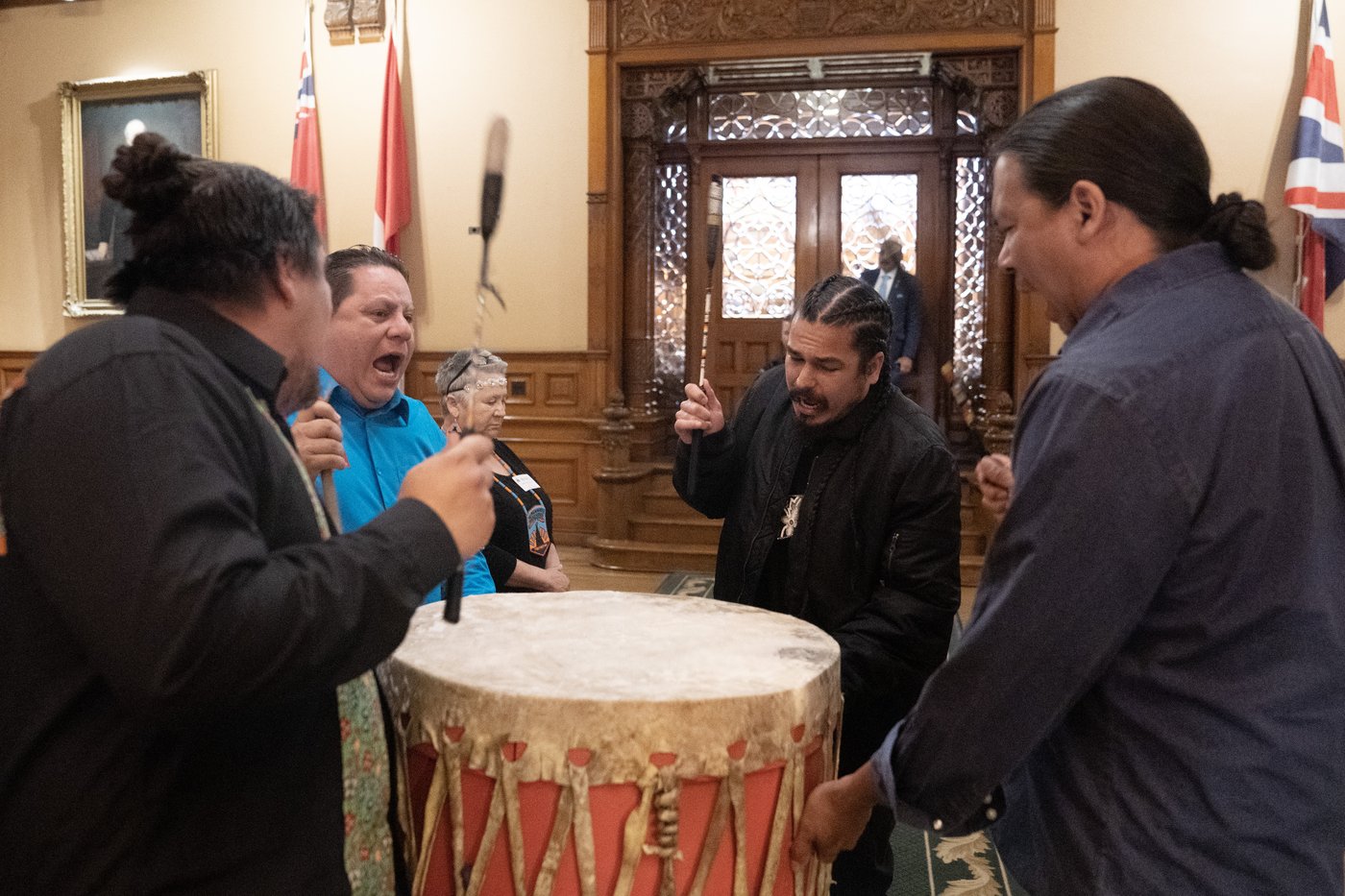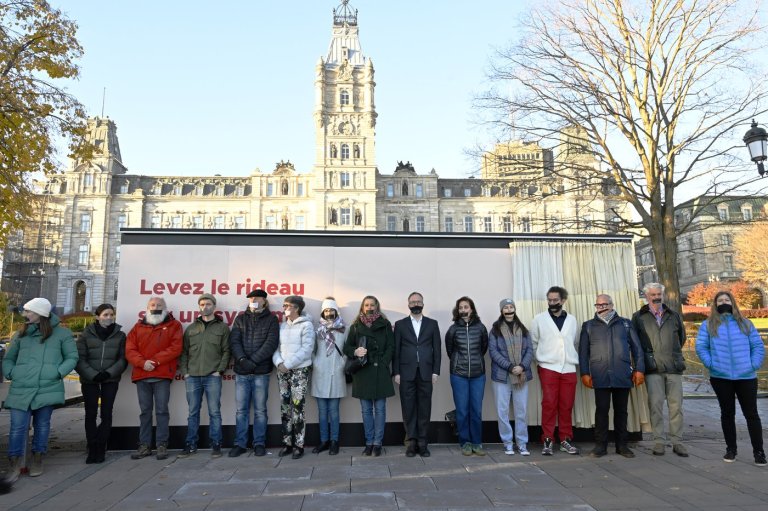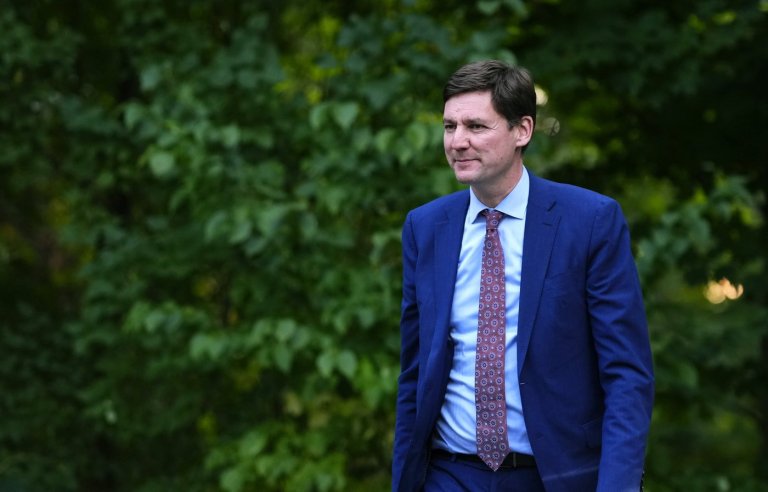Judge says $510M in fees for lawyers in treaty case was unreasonable

OTTAWA — An Ontario court judge has ruled a $510 million legal fee for lawyers who worked on a First Nations treaty rights case was unreasonable — and has ordered the fee scaled back to $23 million.
“A lawyer’s professional retainer is not a lottery ticket offering a bonus prize of generational wealth to the lawyers if the clients hit the jackpot and win a mega-award,” Justice Fred Myers wrote in his decision released Tuesday.
The Robinson Huron Treaty settlement, reached in 2023, sought to remedy unpaid treaty annuities for 21 First Nations.
It resulted in a $10 billion settlement. Five per cent of that sum went to the lawyers from Nahwegahbow Corbiere Genoodmagejig/Barristers & Solicitors who argued the case on behalf of the First Nations.
The First Nations said the fact that the $4-per-person annuity had not increased since 1874 breached the treaty, because resource extraction projects operating on their land had been generating profits that far exceeded what their members received.
Fifteen of those First Nations received less in the settlement than the lawyers working on their behalf did, the judge noted.
Garden River First Nation and Atikameksheng Anishnawbek launched a court application against the lawyers’ fees last year, saying they were unreasonable and that the lawyers were pressuring them not to pursue independent reviews of the payment.
The other 19 First Nations involved in the case did not explicitly support the application to the court.
Myers wrote in his decision that the legal team did great work in arguing the case and “represented the clients zealously, resolutely, passionately, and with extraordinary success.”
But their remuneration was out of line, he added.
“Lawyers in Ontario are entitled to fair and reasonable fees for their services. They are entitled to be well-compensated as agreed between them and their clients,” Myers wrote.
“But lawyers are not their clients. The recovery from a lawsuit, whether by settlement or judgment, belongs to the clients.”
Myers also wrote that lawyers with the First Nations-owned firm Nahwegahbow Corbiere Genoodmagejig advised the First Nations against seeking a legal review of the $510 million in fees.
Myers wrote that in the early years of the case, lawyer David Nahwegahbow told the First Nations they would have to find new lawyers to argue on their behalf if a negotiated fee was not reached.
He also said as discussions about the fee were heating up after the settlement in 2023, lawyer Dianne Corbiere warned the First Nations during a meeting that payments to their communities would be delayed if they sought an outside opinion on the $510 million.
“Ms. Corbiere advised the meeting further that although different lawyers may have different views on their fees, the legal team were their ‘family members’ and were looking to resolve their fees in accordance with Anishinaabe law,” Myers wrote.
“Ms. Corbiere did not advise the meeting that she was acting in a conflict of interest in purporting to advise the fund, the trustees, and the chiefs about her and her team’s own fees.”
The Canadian Press has reached out to the firm for comment but has not yet received a response.
In a document sent to community members and shared with The Canadian Press, Atikameksheng Anishnawbek celebrated the decision.
The First Nation said the excess sum from the fees is to be distributed to each of the 21 First Nations that signed the treaty.
Some First Nations promised community members a 100 per cent payout of the funds the community won, while others opted for a partial distribution setting aside some money for future community development, programming and litigation.
When the two First Nations first brought forward the application to review the lawyers’ fees, Robinson Huron Treaty signatory descendants were divided on whether that was the right choice.
Scott McLeod, the former chief of Nipissing First Nation and current regional chief for Anishinabek Nation, said he expects the decision released Tuesday will ignite further debate.
McLeod, who was involved in the case as it was being settled, told The Canadian Press the debacle could have been avoided if chiefs had taken care to make sure the legal fees they agreed to were fair and reasonable.
“You also have to understand the immense, immense amount of pressure that leadership was under from community to have this settled and to have money distributed to membership,” he said.
“That kind of pressure leads to mistakes, and perhaps (there was) not enough time given to clear (our) thoughts and decision-making.”
He ultimately lays the blame at the feet of the provincial and federal governments.
“If you starve a room full of people and then throw some food in the room after a long period of time, it’s very difficult for those people to make patient, rational decisions,” he said.
This report by The Canadian Press was first published Oct. 29, 2025.
Join the Conversation!
Want to share your thoughts, add context, or connect with others in your community?
You must be logged in to post a comment.


















